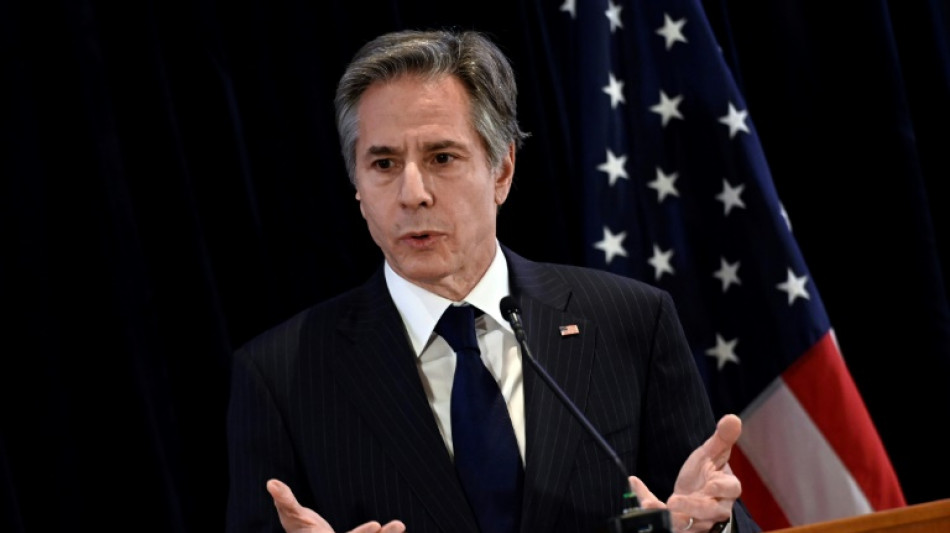

Blinken defends sanctions tactic, warns of more Ukraine suffering
US Secretary of State Antony Blinken said Friday that the suffering of Ukrainians will likely worsen but defended the West's focus on sanctions and limited military support as an effective way to stop Russia's invasion.
Amid rising pressure for US and European allies, and especially NATO, to help Kyiv more on the battlefield, Blinken said that their actions so far against Moscow were only just beginning to have a punishing impact.
But he also said that more military support and more sanctions, as well as increased humanitarian aid for Ukrainians, were the focus of a day of talks at the NATO and European Union headquarters in Brussels.
"The terrible expectation is that the suffering we've already seen is likely to get worse before it gets better," Blinken told reporters.
Earlier Friday NATO rejected mounting calls to implement a "no-fly zone" over Ukraine that could force Russia to stop its jet fighters, bombers and helicopters from attacking Ukraine.
And while the United States and Western European countries are actively supplying Ukraine's forces with anti-armour rockets and portable Stinger missiles that can take down helicopters and slower-moving aircraft, they are refusing to send Ukraine's air force more fighter jets to better counter-attack the Russians.
But Blinken, who has taken a lead role in organizing global retaliation against Russia, said a no-fly zone would be impossible to enforce without expanding the conflict.
"The only way to actually implement something like a no-fly zone is to send NATO planes into Ukrainian airspace and to shoot down Russian planes. That could lead to a full-fledged war," he said.
But even as the Russian invading force pushes ahead and increasingly hits urban civilian targets, Blinken said coordinated Western actions are having an impact.
With what he said was a continuing supply of weaponry, the Ukrainian military has been able to stall some of the Russia advance.
"We are going to tremendous lengths with allies and partners to provide Ukrainians with the means to effectively defend themselves," he said.
"One of the things that we talked about at length today in our various meetings of NATO and the EU was, what more we can do and how to do it effectively," he said.
Ukrainian Foreign Minister Dmytro Kuleba attended those meetings virtually, he said, and gave his counterparts a list of what the country's army needs.
"We're working on all of that, every every single day," Blinken said.
He also cited the impact economic of sanctions on the Russian economy, debasing the currency, forcing up interest rates, and cutting it off from crucial supplies and income.
But he admitted that the impact can't provide immediate relief to millions of Ukrainians.
"Unfortunately, this is not like flipping a light switch," Blinken said.
"It takes time and when you have, in the case of... President Putin's Russia, a country that is prepared to go to excessive means to achieve its results, it's a real challenge.
Nevertheless, he said, "the impact is there. It's powerful. It's real and it is building. So let's see how Russia responds to that as this really takes hold", he said.
(N.Lambert--LPdF)



